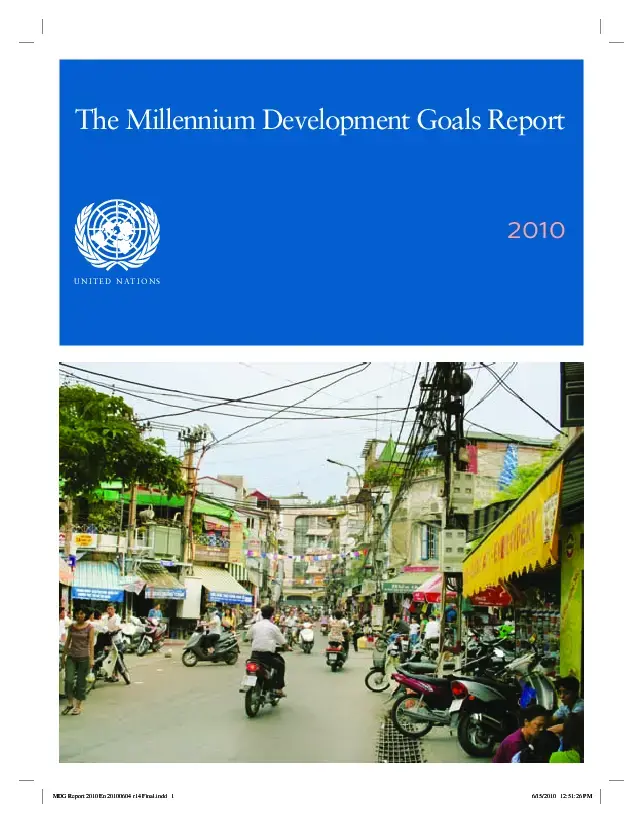The report shows that some hard-won gains are being eroded by the climate, food and economic crises. But even though the economic crisis took a heavy toll on jobs and incomes around the world, the world is still on track to achieve the MDG target of cutting the rate of extreme poverty in half by 2015, the report notes. It also cites big gains in getting children into primary schools in many poor countries, especially in Africa; strong interventions in addressing AIDS, malaria and child health; and a good chance of reaching the target for access to clean drinking water.
Progress on MDG5, improving maternal health, lags behind the others, although preliminary reports suggest progress is being made.
According to the report:
- More women are receiving skilled assistance during delivery in developing countries. However, less than half the women giving birth in Southern Asia and sub-Saharan Africa are attended by skilled health personnel.
- Disparities remain between the wealthiest and the poorest women in getting skilled assistance at birth, especially in Southern Asia and sub-Saharan Africa, where the wealthiest women are five times more likely and three times more likely, respectively, than the poorest women to be attended by trained healthcare workers.
- Meeting women’s unmet need for family planning significantly reduces maternal deaths by cutting down unintended pregnancies.
- Funding for family planning has declined during the first few years of the present decade. And inadequate funding for family planning is a major failure in fulfilling commitments to improve women’s reproductive health.


